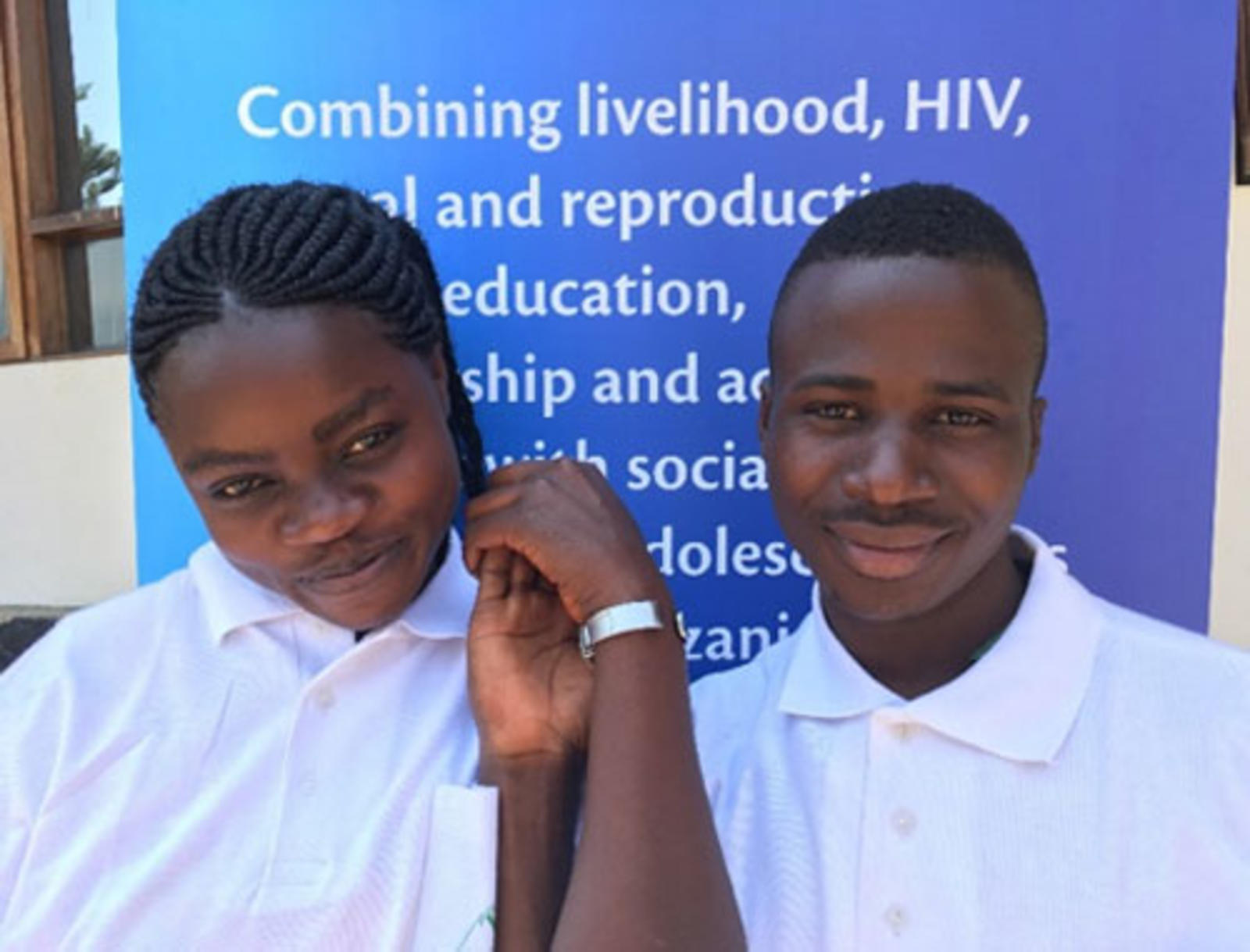June 27, 2018
Helping Tanzania’s youth successfully transition to adulthood© UNICEFTanzania/2017/Kirkegaard
Cash Plus program uses comprehensive approach to empower vulnerable youth
Nearly a quarter of Tanzania’s population, or 44.9 million residents, is adolescent. Over the next decade or so, these young people will enter their most economically productive years, and have the power to unleash their country’s economic potential.
But many youth in Tanzania live in extreme poverty and face great barriers and risks. Fifty-eight percent of adolescents from 14-17 live in multi-dimensional poverty. About a third of girls this age are married before they turn 18. Poverty is one of the key factors why these young people are vulnerable to other risks as well, including HIV and other sexually transmitted infections, exploitation, as well as emotional and physical violence.
This is where the Cash Plus program comes in - an initiative spearheaded by UNICEF, the Tanzania Social Action Fund and other government agencies as part of the SDG Fund’s joint programme to support Tanzania’s productive safety nets. The program focuses on 2,500 extremely poor adolescent boys and girls from ages 14-19 who live in households that are part of the government’s cash transfer program, the Productive Social Safety Network (PSSN). And as the name of the latest initiative implies, Cash Plus involves more than just cash transfers. The program aims to help these youth successfully transition to adulthood by also providing them with life skills training, reproductive health education and services, mentoring, and support.
The hope is to combine cash transfers and targeted programming to eliminate economic, health and other challenges. Cash Plus recognizes that money alone can’t alleviate the severe barriers these youth face, including early pregnancy and marriage, violence, and health problems.
“It’s not enough to just economically empower an adolescent if they are not able to make decisions about their lives, about when to get pregnant and when to have a family,” says Tia Palermo of the UNICEF Office of Research – Innocenti. “So this is really the idea behind this project - to simultaneously empower them both on the economic front but also on the social and health front so they can transition safely to adulthood and reach their most productive potential as adults.

© UNICEFTanzania/2017/Kirkegaard
Halima, 19, is one of 20 participants in her village. At the age of 9, she had to become her family’s breadwinner. She said she was excited about gaining new skills to help her support her family and community.
“I want to learn how to do business and be a successful businesswoman so that I can help my community tackle issues stemming from poverty,” she said.
Cash Plus aims to empower vulnerable young people so they can overcome challenges, expand their opportunities and lead better lives, said Ulrike Gilbert-Nandra, Chief of HIV/AIDS at UNICEF Tanzania.
“The intervention aims to ensure that adolescents grow into healthy and productive adults through intensive life skills training, mentoring and coaching on livelihood enhancement, and sexual and reproductive health,” she said. “These 2,500 adolescents will be supported to go back to school, start vocational training or grow a business whilst building their resilience to manage health-related circumstances that may block them from reaching their goals, such as teenage pregnancy, HIV, and gender based violence.”
A vigorous analysis will help determine how to tailor Cash Plus if needed, or scale up if it’s successful. Future generations can only reach their potential if they are able to break the brutal grip of poverty.






